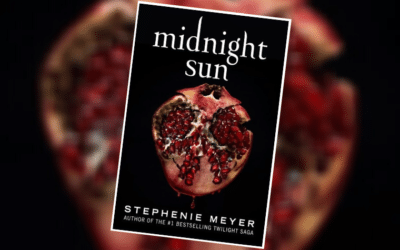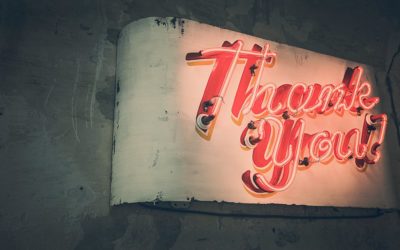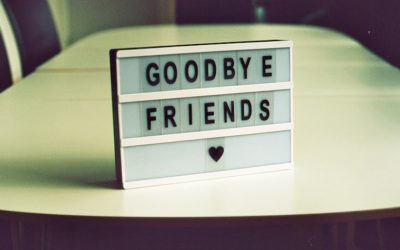The TN group chat we had about Avengers: Infinity War was technically, if you squint at it, a meeting of the T Hiddy Committee. We were both there, and we talked a lot about Loki, so we’re counting it. Before that, however, it had been a bit since we had an in depth conversation about something Hiddleston related. But every once in a while Tom is part of something that needs to be discussed, and one of those times is right now. The other night, the short film Leading Lady Parts came to Jamie’s attention, and after passing it on to Lorena to watch, there were lots of things to say. The film satirizes the treatment of women in the entertainment industry, as well as the types of roles available to them. Making quite the appearance at the end, our main man, who also did an interview about his involvement in the project.
ON THE FILM
Jamie: I have to say, while I think this video is great and is making important points, I would 100% go see a movie called Mary Ploppins starring Tom. He would crush it, that’s a good time at the cinema. But overall, I did love that they were not at all subtle about pointing out how little so many white men have to do to get ahead. Just show up and be you, and that’s enough.
Lorena: Tom as Wonder Woman though… I hope that graphic artist was a woman 😉
Jamie: And Tom being in a musical might actually be the only thing to get me to go see one.
Lorena: I want to feel like the whole thing was an exaggeration of what happens in reality, but I’m pretty certain it is not. Which is HORRIBLE. So I am glad that they made the video and enjoyed it. I am wondering, however, what their hoped for outcome and results are. Like, obviously the Times Up movement is about equal opportunity and compensation. But what will this film achieve? Who is the audience, really? And maybe it isn’t about that, maybe I’m looking at it wrong (I’m seriously just so jaded at this point, it’s hard to discuss stuff like this, you know?) Maybe this is a way for them to be in an environment they’re comfortable in (acting to film) and express themselves and tell their stories. this is just a way for these particular actors to get this energy off their chests and out into the world somehow; for them to feel their voices are being broadcast somehow. Which is totally understandable and something I’ve needed and done years ago in my own way.
Jamie: I agree that it’s easy to be jaded about this stuff. That’s usually my go to emotion as well. But I actually think something like that can actually have an affect, just because it exists, of that makes any sense. I think a lot of the time the thing that really kills progress is just that people move on. There’s a school shooting and everyone is outraged for a while, but then the fervor dies down, nothing happens to really change things, repeat again. Same thing with oil spills, and other disasters like that. Back when the Harvey Weinstein story broke last fall, sexual harassment, assault, discrimination, and equality for women in the work place was all anyone could talk about, but with the way things are in the world today, with what seems like huge stories breaking all the time, that has kind of died down. So something like this is like a reminder: Hey guys, don’t forget about this, it’s still an issue. Just keeping it part of the conversation is a good thing. And we shouldn’t need that to be the case, but it is.
Lorena: I’m glad these women all got to participate in it and conceptualize and create something that gave voice to their experiences, but nothing feels foreign to my own experience and nothing feels like it will matter to change anything. When haven’t I had to be both a virgin and wanting sex? That’s been my entire existence since I first identified sex with manipulation for power because simply existing in a space was insufficient.
Jamie: Absolutely. They’re presenting this in a satirical and humorous way, but anything about this issue is going to be a stark reminder of how bad things have been, still are, and let’s be real, probably still will be for a while. People can wear as many pins to awards shows as they want (or do whatever the equivalent of that is in their industry), but unless people really keep pushing hard, nothing is going to change.
ON TOM’S INTERVIEW
Jamie: I appreciate that in Tom’s interview he came right out and said that this isn’t his story and that he’s taking time to listen to women. Men have a part to play when it comes to changing the culture around sexual harassment and assault, but I would much rather a man hang back for a second until he’s sure about how he can actually be helpful rather than pulling a Matt Damon and running his mouth as soon as possible about what he thinks, and what he feels needs to be done without realizing that his opinion isn’t what’s important. That’s an approach that takes longer, and that’s frustrating, but I think it’s what ends up leading to more lasting change. That being said, I think we’re getting to the point where people are impatient for actual action, and just having conversations isn’t going to fly.
Lorena: I mean, it’s clever how they did the film (not that leading ladies can be clever, obvs), and I’m glad he found a way to participate appropriately. It’s what we all knew him to be capable of and were hoping he’d fulfill in some way, at some point. Real talk, I was hoping he’d been promoting women and equality for always, and maybe he has and it’s just not visible, but that was my expectations of Tom based on his public persona. (We know that was shattered in the Summer of ’16, of course, but thankfully the pretentiously intimate interview by Cumberbatch can live and die in 2016)
This is actually precisely the one question I would want to ask Tom if I interviewed him so I’m excited it’s happening… I would ask him what he’s done to close the gender wage gap since Jessica Chastain spoke about it during the Crimson Peak press tour.
So his answer is:
1. Listen to women
2. Help with this project.
The press tour was when again? Oh yeah, three years ago in 2015.
Jamie: Working with five directors in thirteen years is a terrible ratio, generally speaking, but overall, sadly, I have a feeling it’s actually not all that bad comparatively. I’m sure there are actors who haven’t worked with that many female directors in their entire careers, let alone in that span of time. There are probably some who’ve never worked with any. There just aren’t that many of them sadly, the odds aren’t good. And female directors are hindered by a thousand things, obviously, but to pick one out: the idea that female directors are only appropriate for telling stories about women. And yes, they should, but they can also tell lots of other stories too. I was happy that when Kathryn Bigelow won her Oscar, it was for a stereotypically male movie. One of the directors Tom has worked with, Susanne Bier won an Emmy for The Night Manager, which was also quite masculine. (Although I wonder if someone like the Angela Burr character in that series would have been handled as well with a male director.)
Lorena: I’m glad he’s been listening, but I feel we haven’t gotten sufficient information from him to understand the full scope of his mental state on it all… like his interview is very edited down, so maybe there was more in there. Only the interview producer and some editor Rebel Park Productions hired knows (hopefully the editor is female, because that is a stupidly male field for no real reason at all except pervasive sexism if I’ve ever seen one).
Jamie: Well the editor of the short film is a woman, maybe she’s the editor for all the interview videos also? I hope so too, I’m all for making things as less stupidly male as possible. 😉





